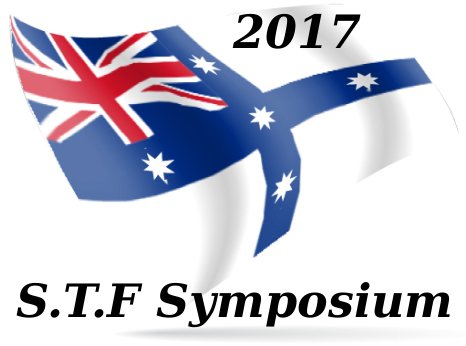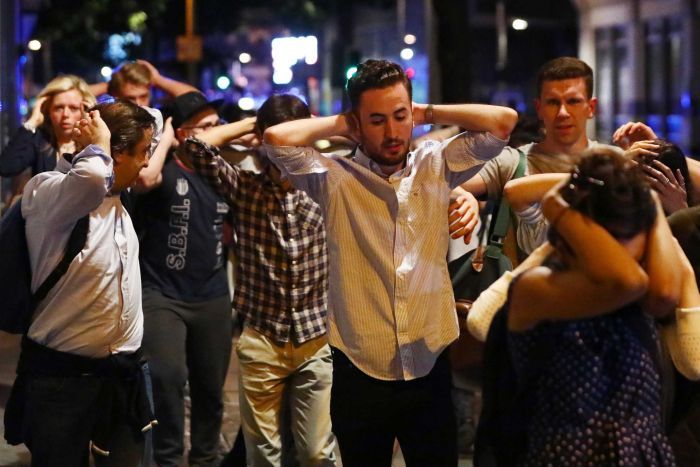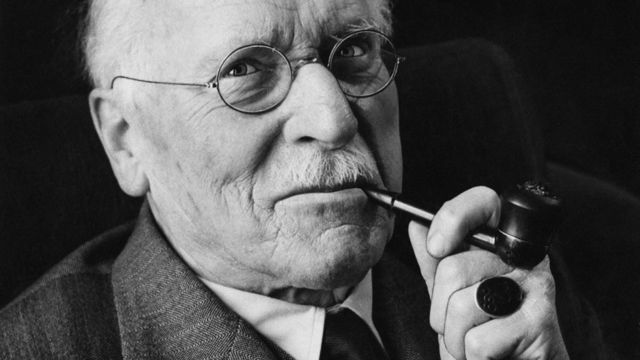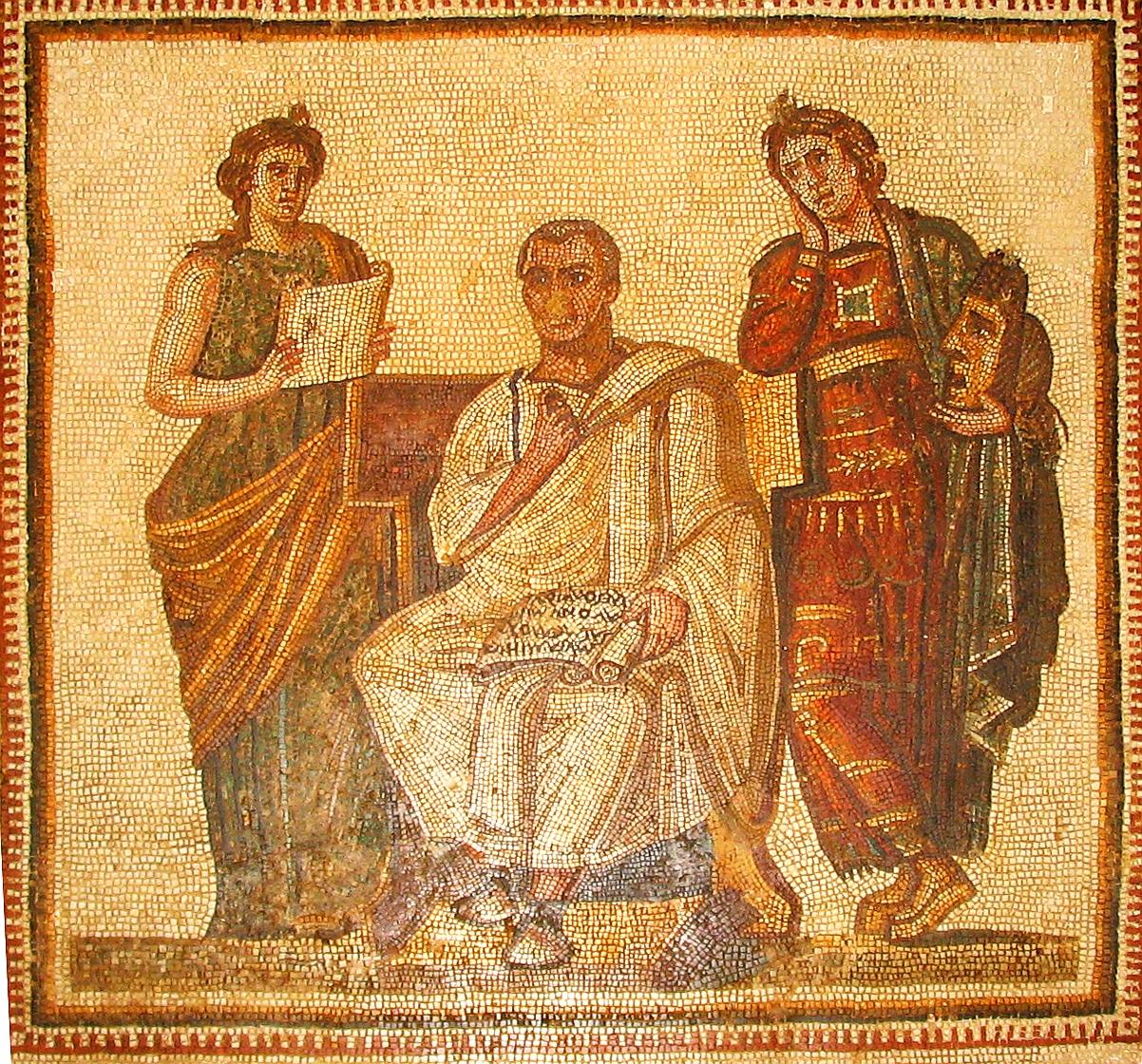“It’s been fourteen days since the inauguration of US President Donald Trump” – that was how we intended to commence our introduction to this latest Symposium of the Sydney Traditionalist Forum last Friday, 3 February. We were, however, overtaken by the tide of local events: rumours of Senator Cory Bernardi’s split from the Coalition, with the intention of setting up an explicitly conservative political party here in Australia, forced us to postpone publication. The rumours of course proved to be true, and the the Senator’s move has been the focus of attention among Australian traditionalists and paleoconservatives who have been waiting for the birth of a viable alternative to the two wings of the liberal behemoth that dominate our nation’s political culture. Bernardi’s exit is symptomatic of what appears to be a global trend (at least among Western and nominally Western countries) and it was also timely: our 2017 Symposium theme is Identity, and specifically, “the future of Western identity: problems and possibilities, obstacles and opportunities.”
 The trauma caused by the relentless undermining of traditional notions of Occidental identity has left a lasting and debilitating mark on our people. Reaction has taken many forms, some of which are – sadly – reiterations of various post-Revolutionary demotic and nihilist ideologies, but others have shown that the spiritual foundations of our civilisation have not been entirely eradicated by “progressivism”. Identity, broadly conceived, is informed and nourished by the manner in which a people expresses itself culturally. Today, with ideology trespassing into all facets of public and private life, this expression is most conspicuous in contemporary political discourse because this is where most of the more explicit battles are being waged. The success of national conservatism in Central Europe, the rise of nationalism in Western Europe, “Brexit” and the election of Donal Trump to the US Presidency being the best recent examples of a nativist reaction to the conceits of a transnational liberal ideology that has reigned unchallenged for the last three decades at the very least. Senator Bernardi’s recent move (the support he has received from his core constituency compared to the vitriol suffered at the hands of the commentariate and political establishment) illustrates that a similar reactive trend is being felt here in the Anglo Antipodes; his task now is to ensure that the “Australian Conservatives” do not follow in the footsteps of passé conservatism and degenerate into the “stupid party” – but that is a topic for another time.
The trauma caused by the relentless undermining of traditional notions of Occidental identity has left a lasting and debilitating mark on our people. Reaction has taken many forms, some of which are – sadly – reiterations of various post-Revolutionary demotic and nihilist ideologies, but others have shown that the spiritual foundations of our civilisation have not been entirely eradicated by “progressivism”. Identity, broadly conceived, is informed and nourished by the manner in which a people expresses itself culturally. Today, with ideology trespassing into all facets of public and private life, this expression is most conspicuous in contemporary political discourse because this is where most of the more explicit battles are being waged. The success of national conservatism in Central Europe, the rise of nationalism in Western Europe, “Brexit” and the election of Donal Trump to the US Presidency being the best recent examples of a nativist reaction to the conceits of a transnational liberal ideology that has reigned unchallenged for the last three decades at the very least. Senator Bernardi’s recent move (the support he has received from his core constituency compared to the vitriol suffered at the hands of the commentariate and political establishment) illustrates that a similar reactive trend is being felt here in the Anglo Antipodes; his task now is to ensure that the “Australian Conservatives” do not follow in the footsteps of passé conservatism and degenerate into the “stupid party” – but that is a topic for another time.
Be that as it may, since politics is indeed “downstream of culture”, the more profound expression of identity is surely meta-political, or that which defines the political currents of the zeitgeist. Perhaps the greatest blow to our sense of collective and common peoplehood has therefore been the gradual deracination of those tangible things that surround us daily, and which remind us of who and what we are. Architecture is no longer a testimony to the particular and a celebration of its enduring value; its subjects are now but temporary vessels for mere temporary habitation with built-in obsolescence (cf. living and the transmission of tradition within the safe confides of the hearth). Music and consumerist popular culture has gone down a similar path towards banality, robbed of all character, universalised and therefore universally disposable. Fashion too has ceased to depict the particular in either national spirit or social class. Literature is largely pulp. We have lost what is permanent because we have allowed ourselves to be convinced that we, qua a particular people, no longer have a unique place in the cosmos of human history. Oh, but it is worse than this! Those who consider themselves today’s “cultural elites” will go so far as to believe that we never really had a unique or particular role in global affairs, and any position of preeminence was a usurpation, a cosmic injustice for which the First World must pay reparations, unspecified quantum for an unspecified time (i.e. ad infinitum). Still further, some hold the paradoxical view that our effective deracination is in fact the ultimate expression of our essence.
Is it any wonder that what were once simple descriptors, White, Male, Heterosexual, Christian, are now used as pejorative terms in “polite company”? The lesson being that those who have no faith in themselves are hated. The election of Trump has become an almost global symbol of those who have finally noticed this oddity, and who have the temerity to reject their cultural – and physical – displacement within their own homelands. Only the foolish will deny that this occurs on the level of identitarian politics. The young man who was kidnapped and tortured in the US recently by a group of four thugs was not targeted because of his “values” or “belief” about the “Constitution”, “individualism” or the “free market”. A cursory perusal of the transcript of his accusers’ violent taunts reveals that he was targeted for what and not just who he was. That episode was emblematic of a trend that is not new, and the more it is dismissed by the mainstream establishment the more virulent it will be, and the more unapologetic and unforgiving the reaction to it will become. But that episode, as terrifying as it was, was the culmination of a long and drawn out process that has been underway for many years under the nose of the explicit left as much as the nominal or faux-right. Both are equally responsible for the status quo.
The suicidal nature of our elite stewardship is the context in which we consider “problems and possibilities, obstacles and opportunities” for national renewal and cultural reclamation. The contributions to this year’s Symposium cover a range of areas where the question of identity arises: the political, social, historical, religious, and the aesthetic. We have intentionally invited an array of different voices, all of whom may be classified broadly as part of the “dissident right” or “sidestream” but many of whom will undoubtedly differ with each other on the particulars of political philosophy, and may even passionately oppose each other when it comes to the minutia of policy. That is fine. While the Symposia are supposed to be a place where non-aligned rightist views can be discussed and exchanged, it is not intended to be an echo chamber. A synthesis of views may occur in the minds of our readers on certain issues, a divergence on others. That too is fine. After the pivotal year of 2016, the Sydney Traditionalist Forum believes that it is essential that an alternative world-view be fashioned in the coming decade, especially among those forces opposed to the leveling ideologies of the twentieth century.
![]()
Prof. Paul Gottfried reflects on the aftermath of the election of Donald Trump, its significants vis-à-vis the conservative base. Tomislav Sunić discuses the future of national and collective European identity on the Continent, and warns identitarians that their problems are not to be blamed on external forces but the moral bankruptcy of the political elites. Michael Warren Davis responds to the calls for a pan-Western identity by outlining the errors of imposing homogeneity on a heterogeneous continent, suggesting that we can only revitalise our civilisation by revitalising its constituent nations, as well as reasserting our particular local culture on the immediate interpersonal level. Valdis Grinsteins suggests that European nations need to rediscover their sense of transcendent mission within the context of a Christian historical framework, both to avoid the disasters of globalist homogeneity and chavenistic nationalism. Alastair Paytner discusses the meaning of Brexit and the Scottish referenda in the context of Burkean conservatism, its inadequacies, and the need for a “healthy radicalism” to restore those things that classical conservatives have traditionally valued but are incapable of preserving. Luke Torrisi describes the collapse of Anglo society as a result of its inability to appreciate the zero-sum game played by competitors for cultural space. Prof. Thomas Bertonneau reflects on the nature of identity, peoplehood and rootedness from the perspective of the ancients. James Kalb discusses the value of identity and how its particularist notions have become synonymous with oppression in the eyes of liberal relativists. Brett Stevens offers a robust critique of the ideology of formal and doctrinaire egalitarianism, and how it can be countered with a return to hierarchy and perennialist ideas. Urho Lintinen discusses the formation of identity, the retarding effects of ideological progressivism, before addressing the need for reactionaries to develop a vision for restoration based on an ideal order found in Nature. Adj Prof. Richard Cocks draws on the inherent truth of beauty as expressed in classical Western aesthetics and suggests that the reassertion of identity can be done through a process of anamnesis, “an awakening of what the soul already knows.”
All of these contributors to the present Symposium offer a different perspective on on the obstacles and opportunities that greet us in an era where truth is denied, where only that which can be physically measured it acknowledged, where the good is actively ridiculed and debased, and where no transcendent authority exists to hold back the continued auto-deification of Man – whether through the majoritarian liberal democratic impulse, or demotic totalitarian pseudo-reaction. The essays that follow are a counterpoint to those who would transform a global citizenry into a mass tabula raza. As pointed out in the opening paragraphs of this introductory comment, there does appear to be a yearning for “change” among the peoples of the West, but this time a change from the materialist, technocratic, and Whig-progressive theory of history. Identity and identitarian related issues will undoubtedly take centre stage in the cultural and political evolution of the West over coming years. We commend the following authors to our readers and hope that their work will inform reactionary discourse leading into this time.
Contributors to the
2017 Symposium of the
Sydney Traditionalist Forum
♣
Prof. Paul Gottfried
A View of the Political Scene
Paul Gottfried is Raffensperger Professor of Humanities Emeritus at Elizabethtown College (Elizabethtown, Pennsylvania, USA), the author of over a dozen books, plus numerous essays and book reviews, mostly dealing with political theory, modern European history and American political movements. His works are widely read and discussed in translation in Eastern Europe but receive far less notice in the US where Professor Gottfried resides; his work has, however, started to attract greater attention after the election of Donald Trump. Prof. Gottfried’s last contribution to the Sydney Traditionalist Forum was to its 2015 Symposium (“quo vadis conservatism, and do traditionalists have a place in the current party political system“) titled “Paleoconservatism: A Vanishing Traditional Right.”
♣
Prof. Thomas F. Bertonneau
Identity: The Future of a Paradox
Thomas F. Bertonneau is an American intellectual and professor. He has taught at a variety of institutions, and has been a member of the English Faculty at State University of New York, Oswego, since 2001. His articles and essays have appeared in a diverse array of scholarly journals including William Carlos Williams Review, Wallace Stevens Journal, Studies in American Jewish Literature, North Dakota Quarterly, Michigan Academician, Paroles Gelées: UCLA French Studies, and Profils Americains. He was a major contributor to the English section of The Brussels Journal. More recently, his work has appeared in The University Bookman, the John William Pope Center for Higher Education Policy as well as the websites The People of Shambhala and The Orthosphere. His contribution to last year’s Symposium (“transcendence: community, nation, civilisation; religious aspects of the present turmoil”) was titled “Shostakovich’s ‘Leningrad Symphony’: Art Transcending Politics”.
♣
Adj. Prof. Richard Cocks
Philosophy and the Crisis of the Modern World
Adj. Prof. Richard Cocks teaches philosophy at SUNY Oswego. Originally from Christchurch, New Zealand, he is presently based in the United States. Dr. Cocks is an editor and regular contributor at the Orthosphere and has been published at The Brussels Journal, People of Shambhala, The John William Pope Center for Higher Educational Policy and the University Bookman.
♣
Dr. Tomislav Sunić
European or Ethnic Identity
Tomislav Sunić is a Croatian-American writer, translator and academic who taught at the Anglo-American College in Prague. Between 1993 and 201, Dr. Sunić served in the Croatian diplomatic corps in Zagreb, London, Copenhagen and Brussels. He received his doctorate in political science from the University of California, Santa Barbara and is one of the exponents of the Nouvelle Droite movement in Europe. Among his various publications, which have appeared in Le Monde, Frankfurter Allgemeine Zeitung, Washington Times, and the New York Times, he is also the author of Homo Americanus – Child of the Postmodern Age (2007) and Postmortem Report: Cultural Examinations from Postmodernity (2010).
♣
James Kalb
Identity and the Civilization of the West
James Kalb is an attorney and writer living in Brooklyn, New York. A Catholic convert, he has written on politics, culture, and religion for a number of publications in Europe and the United States. He is the author of two books, The Tyranny of Liberalism: Understanding and Overcoming Administered Freedom, Inquisitorial Tolerance, and Equality by Command (ISI, 2008), and Against Inclusiveness: How the Diversity Regime is Flattening America and the West and What to Do About It (Angelico Press, 2013). His last contribution to the Sydney Traditionalist Forum was to its 2016 Symposium (“transcendence: community, nation, civilisation; religious aspects of the present turmoil”) was titled “Liberalism as a Religion”.
♣
Luke Torrisi
The Unspoken Moral Question of Identity
Luke Torrisi is a retired legal practitioner and now an academic researcher and host of Carpe Diem, Sydney’s only explicitly Traditionalist and Paleoconservative radio programme broadcasting on 88.9FM, between 8:00 to 10:00pm, Mondays. His contribution to last year’s Symposium (“transcendence: community, nation, civilisation; religious aspects of the present turmoil”) was titled “Politics, Transcendence, and the Corner Store”.
♣
Brett Stevens
Y3K
Brett Stevens writes on the topics of nihilism, deep ecology, nationalism and anti-work. He opposes diversity in all of its forms, including racism and anti-Semitism, and favors a society ruled by aristocrats, organized around hierarchy, oriented toward transcendental and realistic purpose, and ruled by culture which requires extreme nationalism. He has been published at American Renaissance, AltRight, Alternative Right, Return Of Kings, Nihil and the blog where he serves as editor, Amerika.org. His first book, Nihilism, was published via Numen Books in 2016.
♣
Michael Warren Davis
Fogeyism: in Theory and Practice
M. W. Davis is a native Bostonian who has contributed essays to the Sydney Traditionalist Forum. His last contribution to the Symposia was in 2015 (“quo vadis conservatism, and do traditionalists have a place in the current party political system?”) was titled “Voting Traditionalists are Here to Stay, and so is Party Politics”.
♣
Alastair Paynter
Whither Albion? Whither Europe?
Alastair Paynter is a doctoral student in History at the University of Southampton. His research interests include Victorian and Edwardian political culture, and the history of conservatism and classical liberalism.
♣
Urho Lintinen
Restraint: An Heroic Tale in Three Acts
Urho Lintinen holds a Master of Social Sciences from the University of Jyväskylä, Finland, and currently resides in the city of Vantaa, Finland. Mr. Lintinen’s last contribution to the Sydney Traditionalist Forum was to its 2015 Symposium (“quo vadis conservatism, and do traditionalists have a place in the current party political system“) titled “Impressions from the Old Continent“.
♣
Valdis Grinsteins
Identity and the New Nationalism:
Where is it going in Eastern Europe?
Valdis Grinsteins is an international activist working with the Tradition Family Property organisation founded by Plinio Corrêa de Oliveira. While Valdis is predominantly based in Central Northern Europe and South America, on those occasions he has visited Australia he has had a close working relationship with the Sydney Traditionalist Forum and local reactionaries in the Sydney region. His contribution to last year’s Symposium (“transcendence: community, nation, civilisation; religious aspects of the present turmoil”) was titled “The Failure of Utopian Europe”.
Citation Style:
This article is to be cited according to the following convention:
The Editors, “Introduction and Welcome to the 2017 Symposium of the Sydney Traditionalist Forum” SydneyTrads – Weblog of the Sydney Traditionalist Forum (11 February 2017) <sydneytrads.com/2017/02/11/2017-symposium-introduction-and-welcome> (accessed [date]).





Reblogged this on Manticore Press.